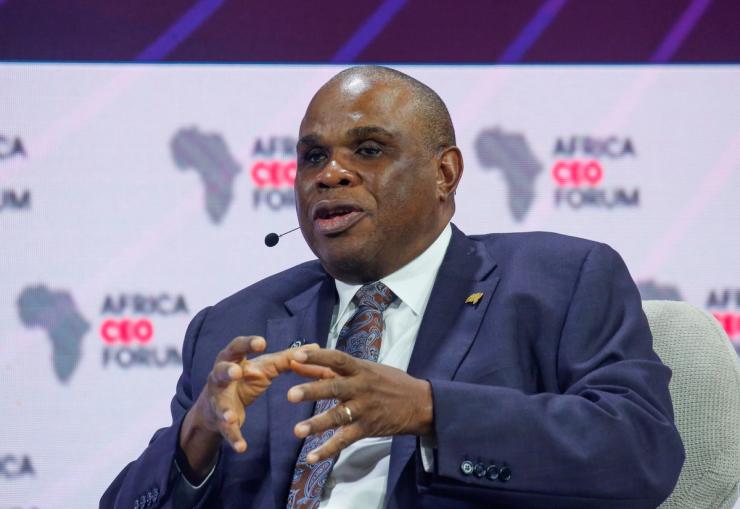The downgrade of the African Export-Import Bank (Afreximbank) by Fitch Ratings to a notch above junk status last week has sparked massive conversation. The New York-based agency cut Afreximbank down to a BBB- rating with a negative outlook from a BBB stable outlook, rating noting higher risks from its sovereign loans being restructured.
But the African Union’s African Peer Review Mechanism — a unit that analyzes international credit ratings of African sovereign debt — pushed back against the assessment, claiming Fitch had misclassified loan restructuring “invitations” as defaults. The APRM’s stance reflects its policy position against the practices of the Big 3 rating agencies: Fitch, Moody’s, and Standard & Poor’s.
The facts however seem straightforward. South Sudan has not only defaulted, Afreximbank has had to sue in a London court for recovery. Zambia told the International Monetary Fund in 2022 that it stopped servicing its Afreximbank debt in 2021, and won’t resume until Afreximbank accepts restructuring. Ghana has been equally emphatic. In each case, Fitch’s criterion for declaring a supranational lender’s loan to be non-performing (six months overdue) has been met.
At the heart of the matter is a kind of murkiness and opacity around some of Afreximbank’s dealings. The Cairo-based institution, which has grown by leaps and bounds over the last decade, often seems determined not to be bogged down by orthodox multilateral development bank practices.
Under its outgoing President Benedict Oramah, Afreximbank has pushed the envelope hard on how a development bank should think and act. It has taken risks like lending to Zimbabwe when no one else would. It regularly lends without demanding any policy reforms, unlike many classic development finance institutions. According to Fitch, it has allocated up to 92% of loans to commercial businesses rather than sovereigns.
The result has been remarkable growth. Central bank deposits have surged since Oramah took over in 2015 to a cumulative $37 billion. Assets have grown to $40 billion from around $7 billion. Some of that growth has been spurred by high interest rates. Some loans to Nigeria and Zimbabwe attracted over 12%. Some money lent to Ghana was priced at 6.875% above the SOFR benchmark rate, when similar loans from the World Bank were going for 1.09%. On top of it all, country-level activists rail at the lack of transparency around the Afreximbank’s deals with their governments.
All this brinkmanship has made major global development actors like the Paris Club of rich creditor nations determined not to recognize Afreximbank as a classic multilateral development bank. They want its loans restructured, hence the downgrade.
At the end of this month, Afreximbank will vote for a new president. He or she will have a tough choice to make: Continue the high-stakes commercial adventurism that has boosted growth, and clout in African capitals, or safeguard the bank’s MDB-like reputation and privileges? You can bet the bank on this, it won’t be an easy choice.
Bright Simons is an honorary vice president at IMANI, an Accra-based think tank, and a visiting senior fellow at ODI Global in London.


